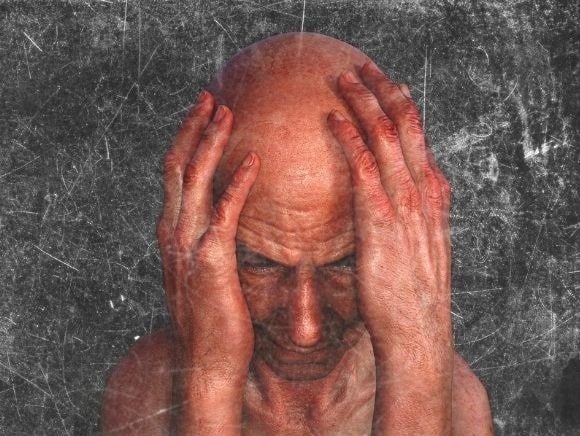
For a time, they were in denial. The declining state of the nation would soon be a thing of the past, they told us. Inflation, poisonous to any presidency, was transitory. Critical race theory isn’t really being preached in schools. The supply chain would be re-attached, baby formula would soon flow freely, crime would come under control, and so would the record surge of illegals over our southern border. And voters infuriated by the humiliation of our surrender in Afghanistan will have forgotten about it or moved on.
But now, Democrats apparently can no longer deny their desperation. Progressives and liberals are fighting and pointing fingers at each other. The single factor which unites them, Donald Trump, is not on the ballot to serve as the entire basis for their candidacy, à la Joe Biden in 2020. The party has been entirely unable to shed the image of wokeness ingrained in normal Americans during the riot-torn 2020 summer of shame.
Even the gray lady is forced to concede that Democrats face the potential of catastrophic losses this November. In an almost apocalyptic piece headlined “Democrats See Headwinds in Georgia, and Everywhere Else,” The New York Times describes “a political landscape that is increasingly tilted in the Republican direction in Georgia — and nationally,” lamenting that “even the strongest candidates and recruits can outrun President Biden’s wheezing approval ratings by only so much, and are at risk of getting washed away in a developing red wave.” And even Bernie Sanders admits that “the Democratic base is quite demoralized at this moment.”
Ironically, Democrats may well rue a day they previously cheered – January 5, 2021, when they forged a 50-50 tie in the Senate, gaining control by the thinnest possible margin, namely the tie-breaking capacity of VP Kamala Harris. Together with their narrow control of the House, almost certain to be reversed in these midterm elections, and the presidency, where Joe Biden has slipped to a rock-bottom 36% public approval in the latest Reuters/Ipsos poll, they will now be held fully responsible for the multiple crises afflicting the country.
If they had lost the Senate, where they achieved an improbable 50-50 tie with not one but two narrow last-minute upset victories in Georgia, Democrats could now at least be casting some degree of blame for prevailing conditions on a Republican-controlled Senate blocking their left-wing initiatives. But with the privileges and opportunities inherent in controlling the chamber comes also responsibility for the results. And on almost every matter of present importance to the American electorate, the Dems are on the wrong side of the 2022 issue matrix, that combination of issues which have risen to the top of voters’ list of concerns.

Stacey Abrams (Photo by Drew Angerer/Getty Images)
But the troubles don’t end there. Stacey Abrams, belle of the left-wing ball ever since she lost the race for governor of Georgia in 2018 – though she has yet to concede – insults the state she purports to lead: “I am tired of hearing about how [Georgia] is the best state in the country to do business when we are the worst state in the country to live in.” One senses Ms. Abrams is in for a fall. Already, the 2020 census has cost Democrats congressional seats for a decade, forcing New York Reps. Jerry Nadler and Carolyn Maloney, both longtime veterans and powerful committee chairs, into the indignity of competing against each other, among other redistricting nightmares.
And as if their self-generated crises are not enough leaden baggage, the party is under attack from powerful titans of industry who have long supported it. Jeff Bezos, the second-richest man in the world and owner of that prominent Washington newspaper with deep ties to the left, shockingly condemned Joe Biden recently for saying higher taxes will fix inflation. The world’s wealthiest man and long-time liberal Elon Musk prepares to take over Twitter and open it up to free speech, and announces to his 91 million followers that Democrats “have become the party of division and hate, so I can no longer support them and will vote Republican.”

The impending Supreme Court decision likely to overturn Roe v. Wade promises to increase turnout somewhat among the Dems’ disaffected base, but a singular focus on abortion is likely to backfire among the broader electorate. A majority of voters may not be fully pro-life, but most do favor far more restrictions than those reflected in the Democrats’ rejected Senate bill, which would have actually expanded abortion rights well beyond those inherent in the Roe decision.
Things don’t look much brighter, either, when the focus turns to the 2024 presidential election. In this rudderless party, Joe Biden insists he will run again, but even most Democrats don’t believe it. And they now must admit that Kamala Harris is a hopelessly unpopular non-starter for president. None of the candidates who failed in the 2020 primaries – from Pete Buttigieg to Elizabeth Warren to Cory Booker – are any longer considered serious presidential timber. And at the same time, none of them can afford to openly challenge their sitting president, even as he descends to the point of no return, for it would signal almost certain defeat in the general election. The party is indeed stuck between the proverbial rock and hard place. Longtime party strategist, the follicularly challenged James Carville, may have most effectively summed it up in his comment to The New York Times, reflecting the increasingly fearful mindset of Democrats with less than six months to go before voters cast their ballots:
“If I had hair to catch fire, it would catch fire.”
Remember to check out the web’s best conservative news aggregator
Whatfinger.com — the #1 Alternative to the Drudge

